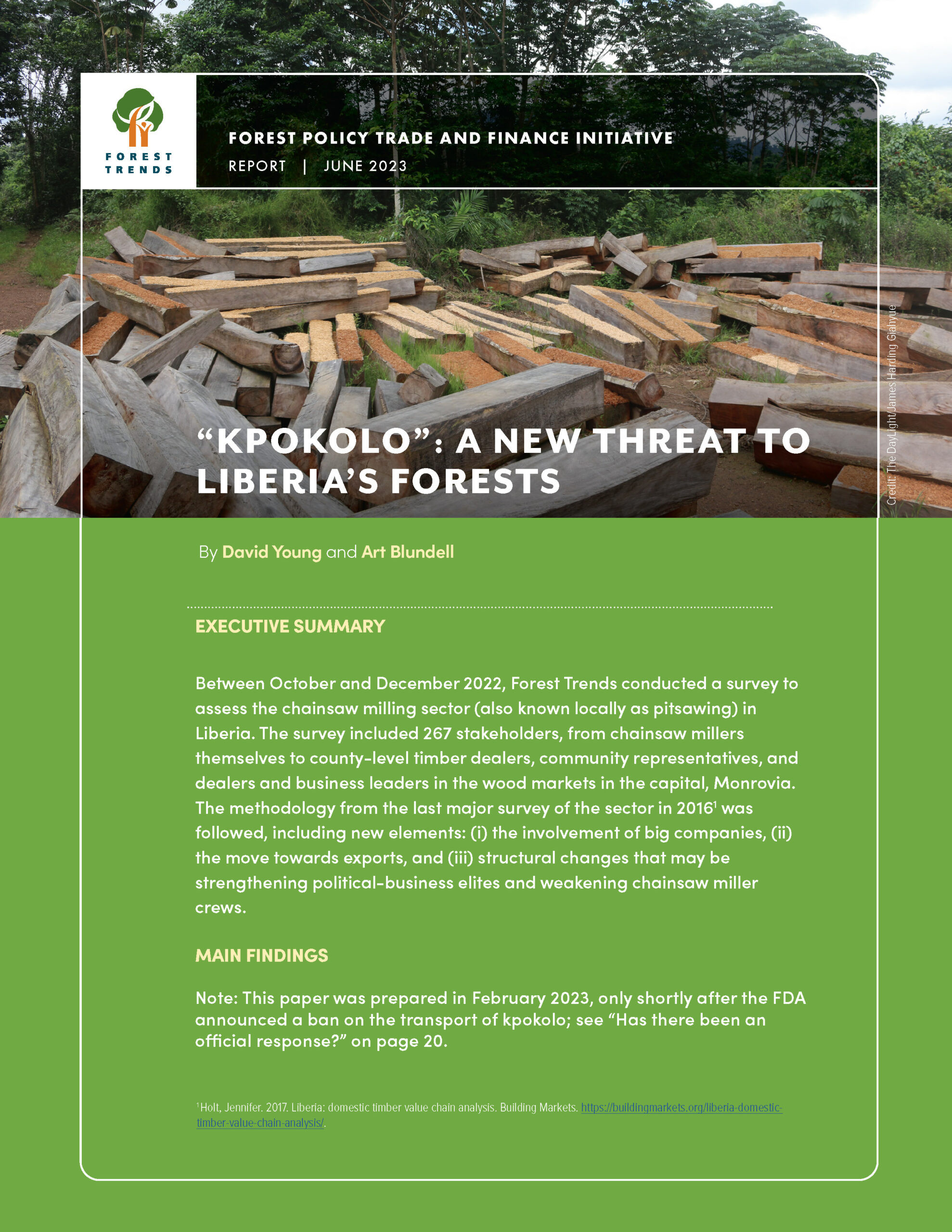
According to research from Forest Trends’ Forest Policy, Trade, and Finance Initiative, a new form of illegal logging poses a significant threat to Liberia’s forests, climate change mitigation, and local communities. Locally called kpokolo – large blocks of timber produced using chainsaws – this form of logging undermines the sustainable management of Liberia’s forests and the economic benefits they provide to local communities. There is no legal definition of kpokolo in Liberia, but the export of chainsawn timber is illegal. Increasing deforestation also undermines Liberia’s attempts to mitigate climate change by sequestering carbon in large trees. Without government controls, illegality in the kpokolo supply chain puts Liberia’s forests and communities, and global climate mitigation, at risk.
Forest Trends’ report focuses on the challenges faced by Liberia’s Forestry Development Authority (FDA) in preventing kpokolo production and recommends next steps to address enforcement issues:
- Kpokolo harms small-scale lumber producers and circumvents Liberia’s existing laws and regulations. Chainsaw milling was legally formalized during Liberia’s postwar forest reforms to provide employment to small-scale operators and increase local timber supply for reconstruction. However, compared to the domestic market, kpokolo timber for export generates higher profits, which attracts larger, more powerful and influential business actors. Without government control in the kpokolo supply chain, larger companies squeeze out local artisanal operators who have traditionally supplied the domestic market and avoid the rules intended to control the formal chainsaw milling sector.
- The threat of illegality is significant. The report indicates that most kpokolo is either i) not coming from a permit area, or ii) is untraceable because no origin is documented. Most agreements with local communities in the kpokolo and chainsaw milling sectors are verbal, and there is little incentive for stakeholders to report illegalities.
- The Government of Liberia has not taken clear steps to regulate kpokolo In February 2023, the FDA said it banned transport of kpokolo, but no official statement or document detailing this ban has been found, making it easy for operators to deny knowledge of the ban.
This report demonstrates the significant threat posed by kpokolo, as well as the failure of Liberia’s forest authorities to enforce legal compliance. Overall, Forest Trends recommends that President-elect Boakai push the FDA to publish a detailed announcement banning kpokolo that includes an official definition of kpokolo, clarification on the specific Liberian laws at play, and the penalties for defying the ban.
